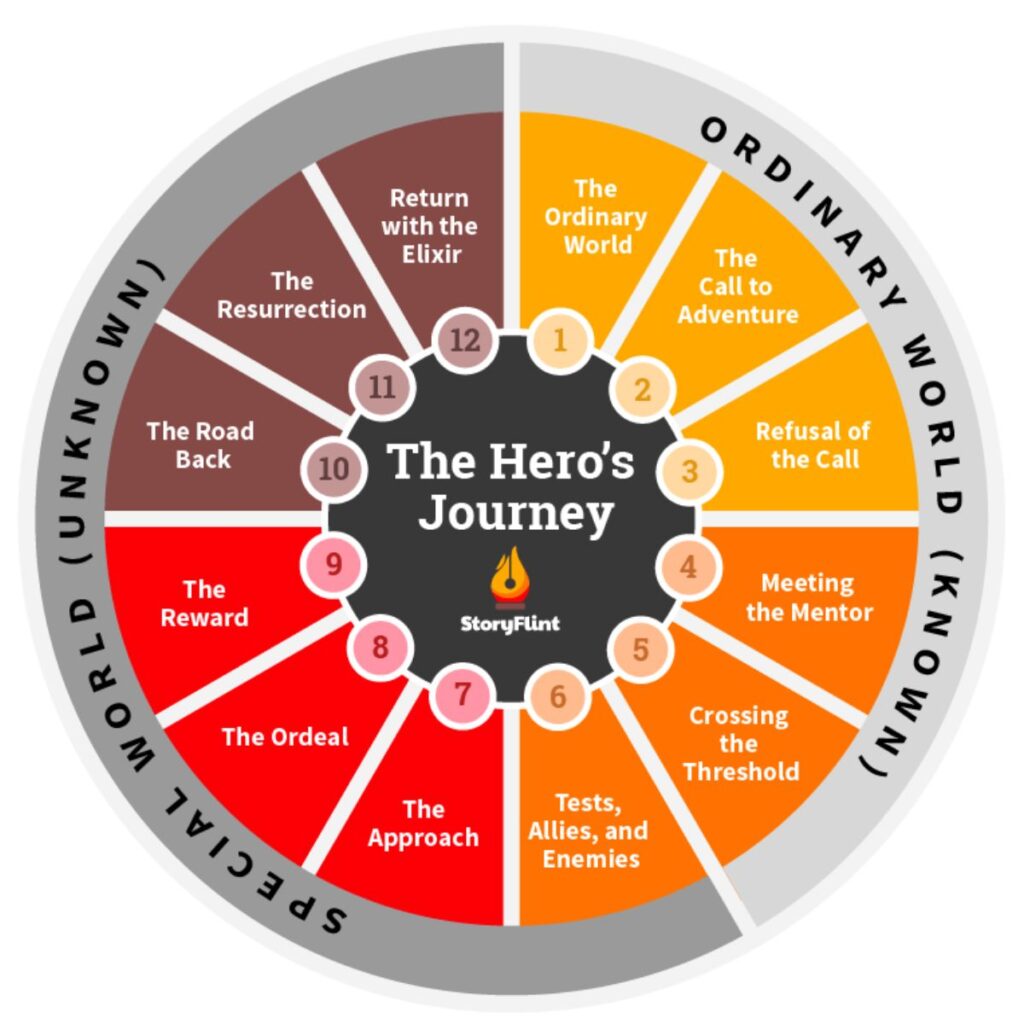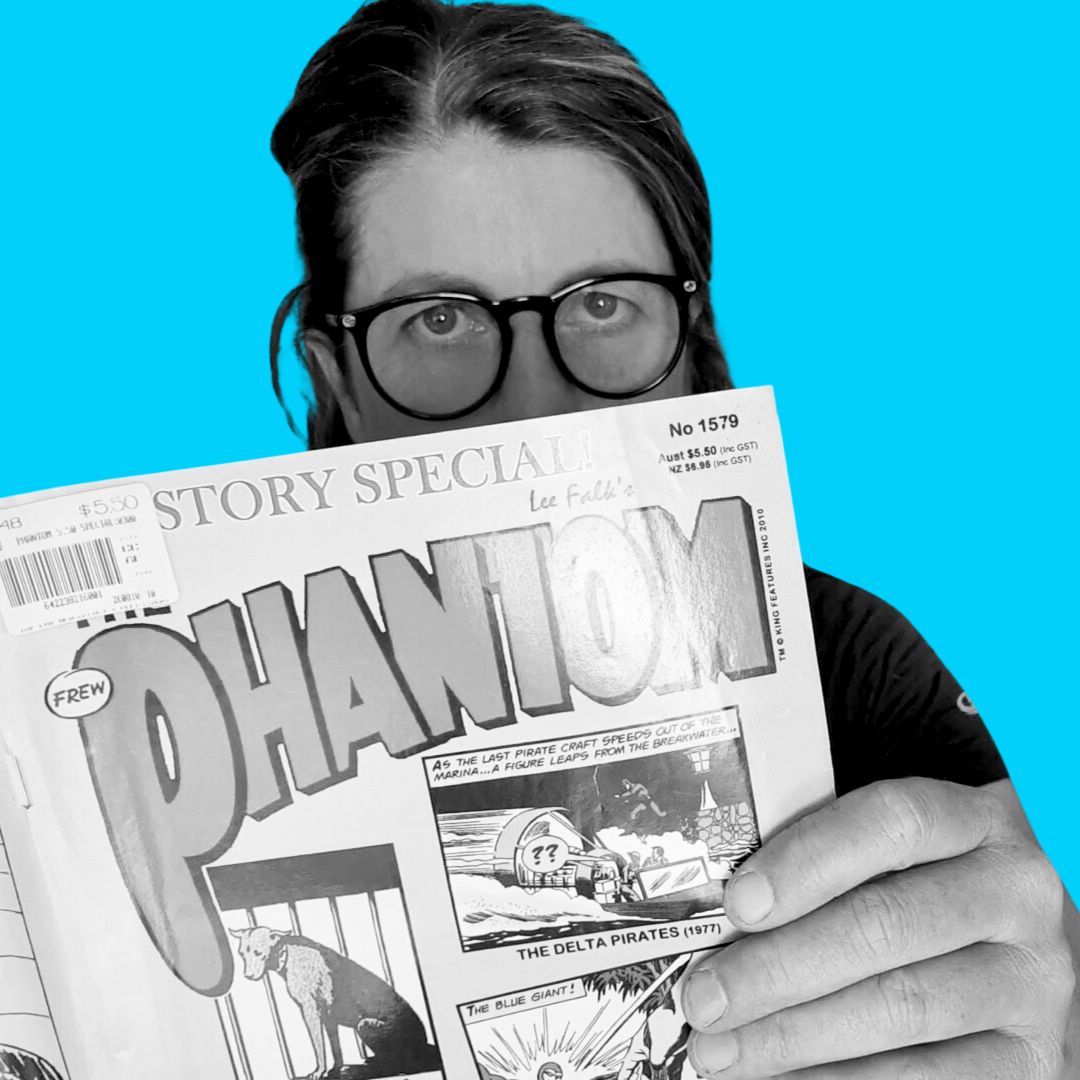In 1949, writer Joseph Campbell created the Hero’s Journey story curve. The 12 phases of the Journey start with the call to adventure, then plummet the protagonist into The Ordeal, from which they resurrect with new answers.
You’re living the same Journey. Once you realise that, achieving your goal will become easier and more rewarding.
The Hero’s Journey is real.
I’ve spent countless hours lying in my bed at night, tossing and turning, unable to sleep. The stress of an impending challenge would trigger all sorts of internal fears, and I’d question if I was good enough to succeed.
What if I’m not good enough?
What if I get hurt?
What if so-and-so lets me down?
What if I get embarrassed?
What if people laugh at me?
What if people don’t laugh at me?!
I never made the connection to the Hero’s Journey all that time. Once I did, I found I could relax (and sleep!) when the feelings of self-doubt arose.
Campbell designed the Hero’s Journey to describe the human experience. It’s a case of art imitating life, not the reverse. That’s why stories based on it resonate strongly with us. We see our own struggles within the actions of the heroes.

The Ordeal is stage 8 of the Hero’s Journey, not stage 1.
Self-doubt occurs throughout the Journey. When a big goal first inspires you, you’ll question your capabilities and wonder if it’s possible.
At that stage, self-doubt is cloaked in the excitement of a new adventure. You know you’ll have to grow to achieve your goal, but the rewards are within your grasp if you open your mind and persist.
Later in your Journey, self-doubt rises again. You’ve burned time, energy, and money and had many ideas fail. You feel like your dream is never going to happen. You feel self-doubt in its most raw, soul-crushing form.
A woman contacted me recently. She’s 12 months into a new business venture and seriously doubts her ability to succeed.
She said she had made lots of false starts and little progress.
She was barely making money.
She wished she had built a website earlier and learned more about marketing.
She had hired and fired contractors repeatedly.
She found it hard to talk to people, and her health was suffering.
That’s what it feels like when you enter The Ordeal. Your motivation and dreams fade under the weight of questions to which there seems to be only one answer: I’m not good enough.
It is not society that is to guide and save the creative hero, but precisely the reverse. And so every one of us shares the supreme ordeal — carries the cross of the redeemer — not in the bright moments of his tribe’s great victories, but in the silences of his personal despair.
Joseph Campbell in The Hero’s Journey
I’ve lived The Ordeal phase many times.
Every ultramarathon I’ve run demanded that I battle my mental demons to reach the finish line.
One moment, I would be running along perfectly fine. The next moment, a mental darkness descended, and I’d feel weak, question my training, abilities, and strength.
Every ultra-runner goes through those moments, and the more experienced runners taught me how to fight.
Focus on putting one foot in front of the other. Take one more small step, then another. Start singing, telling jokes, do anything to distract the demons. Remember all the work you’ve done and everything you’ve achieved before. You have to keep moving forward. The mood will shift, and the daylight will come, but you must keep moving.
They were right. It worked every time, and with each success, I became a stronger, more confident runner.
You must back yourself. No one else can do that.
The next time you find yourself tossing and turning, unable to sleep, I want you to do something quite extraordinary. Instead of wrestling with the problem in your mind, I want you to stop and give yourself a big hug, inside and out. Say a few kind words to yourself.
Relax. Take a few deep breaths. Count three in and out.
Tell yourself that you’ll come up with the answers tomorrow. But for that to happen, you need sleep.
Keep breathing, relaxing, and repeating you’ll have the answers tomorrow until sleep takes hold.
Then, the next day, tackle your self-doubt head-on.
When you hear the words “What if I’m not good enough?” probe deeper and ask, “What do I need to be good at right now? How do I fix any gaps with what’s already around me?” (Channel you inner MacGyver)
When you mutter, “What if so-and-so lets me down?” map out what could go wrong and plan your alternate routes.
When you lament, “I made a wrong decision!” reflect on what you learned along that path. Nothing happens purely by chance.
You can do it. You can find the power within you, and then, when you’re ready, your big, bold goal will live.



